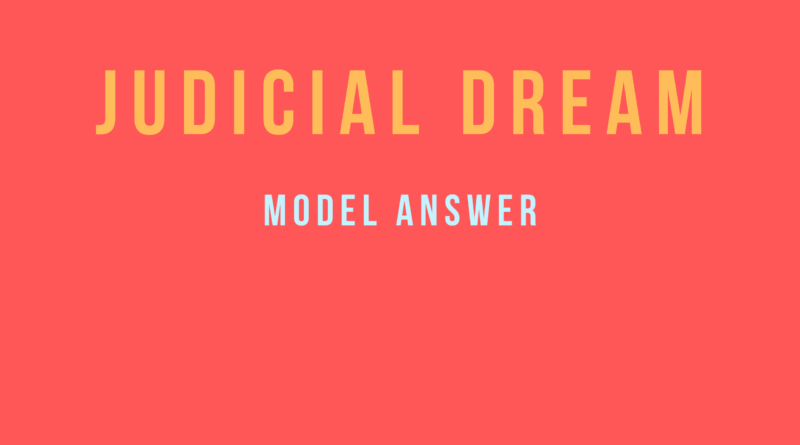MUTA MARRIAGE
Explain the concept of Muta marriage under Muslim law.
In Muslim law, it is generally said that, marriage is contractual in procedural and socio- religious in substance. It is contractual in procedure because to solemnize a valid marriage, parties have to fulfil certain conditions which are also required to be fulfilled to make a valid contract. Moreover, it is socio- religious in substance because at the time of solemnization of marriage certain holy paras from Quran have been recited and the main objective of marriage is to help the society in continuation by adding a unit into it.
All these conditions are for permanent marriage and permanent marriage is recognised by both that is by Sunni sect as well as by Shia sect. But there is one kind of temporary marriage that is purely contractual in nature and this kind of marriage is recognised by Shia sect and not by Sunni sect and such marriage is known as Muta marriage.
Muta marriage is a temporary marriage and in the Muslim law, the meaning of Muta is pleasure or use. Basically, this marriage is just for pleasure and enjoyment of sexual relationship.
According to Shia law, one can perform Muta marriage with “n” number of persons and there is no restriction that one can marry only with four wives only during his lifetime. Even Muta marriage is a temporary in nature and it is for a fixed period but at the time of solemnization of Muta marriage, dower is specified by parties and husband is bound to give dower to his wife.
Such marriage is considered void in Sunni law but it is considered valid in Shia law and according to Shia law, a male can contract Muta marriage with a Muslim, Christian, Jews that is with Kitabia. Even, he can marry with fire- worshipper but she must not be a follower of any other religion. According to this law, Muta marriage with Hindu girl is void. But Shia female can contract Muta marriage only with the Muslim male.
Muta marriage is different from permanent marriage because it is contracted for a specified period but if at the time of solemnization of Muta marriage, the time period has not been fixed by parties or if after expiry of the specified period they continued to live with each other as husband and wife, then in the absence of witnesses, such marriage is considered a permanent marriage. It was held in the case of Shohrat Singh vs. Jafri Bibi.
In Muta marriage, no right of inheritance is conferred upon parties and no party can inherit property of another in the capacity of husband or wife. But, if during the wedlock, any child is born out of that wedlock, that child is considered legitimate child and he has the right to inherit property from his parents.
According to Shia law, wife of such marriage is not entitled to maintenance and husband is not bound to give separate residents but under Code of Criminal Procedure, 1973, she can claim maintenance. But she is entitled to dower. If marriage has been consumed by the parties then she is entitled to full dower otherwise to only half of the dower.
Moreover, according to Shia law, if such marriage is dissolved by death of the husband then she is bound to observe the iddat period for 4 months and 10 days but if the marriage is dissolved otherwise than death of husband then if she is a subject to menstruation period she has to observe iddat period for two courses otherwise for 45 days.
According to Shia law, Muta marriage cannot be dissolved by divorce. It comes to an end on the expiry of specified term or by mutual consent of the parties or by death of the either party. But, if before the expiry of specified period, husband wants to dissolve it then he can do so by giving the gift of remaining period to the woman and if a woman wants to dissolve it before the expiry of specified period she can do so by relinquishing the proportion part of the dower for unexpired period.



